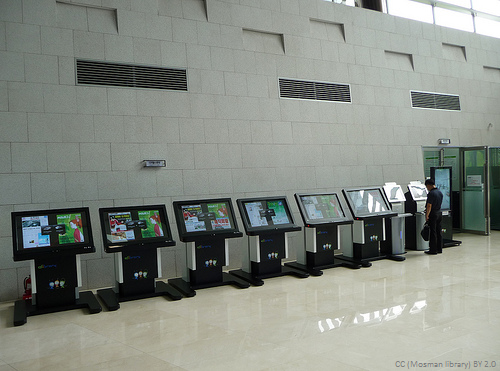Human Rights in the Digital Age, the Discussion in the Colombian Case
by Digital Rights LAC on August 27, 2013
Do we lose human rights when we log in to the Internet? What are the new nuances that take on this debate? Experts from four countries met to deliberate on the Colombian case on the conference “Human Rights in the Digital Age.”
Por Nathalie Espitia, Fundación Karisma*
The conference took place on July 25 in the city of Bogotá. There was a total of 12 speakers, including lawyers, journalists and academics, who debated for an intensive day a subject that is of vital importance in the present context, given the relevance of cases like Edward Snowden’s leaks on espionage network PRISM, and nationally, the upcoming implementation of the surveillance system “PUMA” or the controversy generated by the various “Lleras Laws”, to name a few. These scenarios highlight the urgent need to reflect on issues such as Internet privacy, freedom of expression, due process and generally to address the discussion of human rights in digital environments.
Internet has served and serves to promote and protect human rights. But, in the same manner, it has been used and defined -by governments and private companies- as the scope of action to infringe those freedoms. During the conference, the Colombian case was sought to be addressed and analyzed, not only from the perspective of those who live in this country, but precisely in dialogue with practices that are taking place in other countries such as Chile, Argentina, Canada and the United States.
The morning session was devoted to the implications of new technologies on human rights and the afternoon session focused on technical aspects. It is worth noting the participation of representatives of the Colombian government and the National Directorate of Copyright, which made it possible to confront proposals among polarized parties on the subjects addressed.
During the conference recurring phrases emerged among panelists and some members of the public, which show positions, conclusions and concerns on the subject.
Among these, we find the call made by scholars, experts, lawyers, journalists and general users to revise existing laws and systems related to subjects of freedom of expression, privacy and accessibility in digital environments. In this sense, they advocated for inclusive process of consultations with different sectors and individuals that, from their knowledge and concerns, will build procedures that take into account common users. They also urged to work considering international benchmark cases such as Canada, Argentina, Chile and the United Kingdom, which have led to a mid-point between government’s interests and activists’ and Internet users’ demands. In reference to the subject, Toby Mendel, Executive Director of Centre of Law and Democracy, who delivered the keywords, said “let us not be afraid of the differences between countries; human rights are international.”
It was also highlighted that the transformations linked to new technologies not only to affect the digital world, but the analog and vice versa. Thus, human rights should be a matter of great concern and importance in the digital age, since “human rights are not left behind in the online world,” as pointed out by Ramiro Álvarez, Director of the Access to Information of the Association for Civil Rights in Argentina.
Fabiola Carrión, Policy Counsel of the New York-based NGO Access Now, said during her intervention at the plenary session National, Regional and International Perspectives on Human Rights Issues on the Internet countries “it needs the support of civil society, otherwise companies will advise them on these issues and they are not particularly interested in the public good.” She concluded saying that ” technology developments improve, while rights are falling back,” condensing in a phrase, one of the most disturbing certainties of the political and social moment we are living.
On the plenary session Exceptions and Limitations as Balance Instruments of Human Rights in Copyright Legal Framework some panelists brought into focus questions like “why do we accept punishing behaviors in the digital world that we reject in the real world?.” Finally, in the closing plenary Liability of Internet Service Providers and Content Removal Procedures, Carlos Cortés, a Colombian Legal Advisor on media regulation, Internet and technology, asked “Are we going to confer power to a private agent to decide whether content is legal or not? Is it okay to surrender our rights through a contract?.”
Optimistically, these questions have been recorded in the audience’s memory and in the government agendas, so the debate, which still continues, is engendered in building inclusive scenarios that enable processes to respond to the challenges of the current era.
*Nathalie Espitia, Karisma Foundation’s collaborator.






